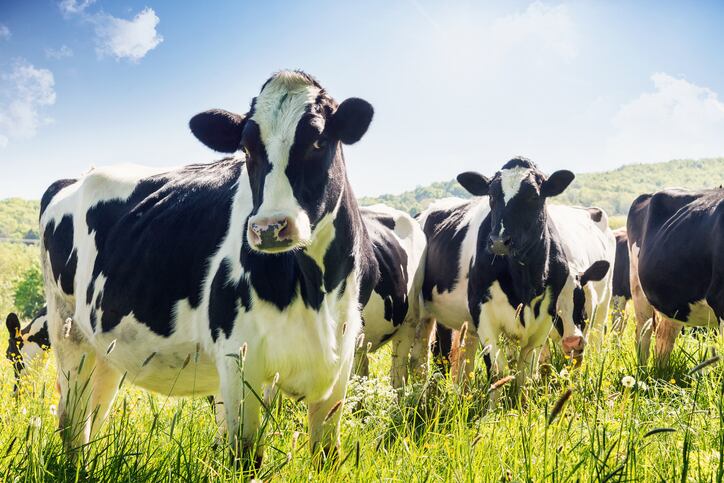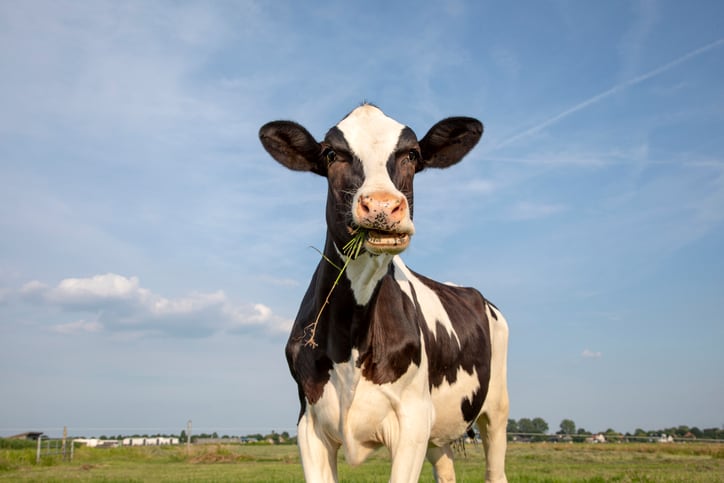Synomics, a biological data firm that produces insights to help improve the productivity, health and well-being of crops and livestock, said by using genetic analytics to isolate and predict specific traits, farmers and producers will be able to utilise the data within selective breeding programmes to improve the health and fertility of dairy cattle, including reducing incidences of mastitis.
It said its new study, using a completely new approach to analysing variations within the genome, has identified a pathway for improving the accuracy with which key economic production, health and fertility traits can be predicted in dairy cattle. This gives, therefore, producers the ability to select healthier cattle that produce higher quality milk.
The company, which is based in Oxford, UK and Copenhagen, Denmark, suggested the most significant finding from the study was the increase it was able to realise in the heritability (a key element of genetic selection) of traits such as mastitis-resistance and 1st-time pregnancy, which had previously been too low to justify inclusion in many genetic selection programmes.
Synomics was able to increase heritability of these traits to a level where genetic selection can now be undertaken using smaller datasets, potentially transforming the way elite dairy cattle are identified.
Genomic selection using single nucleotide polymorphisms (SNPs) is a powerful new tool for genetic selection. Synomics’ results were made possible through the use of proprietary combinatorial analytics platform, which analysed data from 4,000 dairy cattle to identify high-order combinations of SNPs which the company then maps to key genes. Identifying a small number of high-impact SNPs, it claimed is much more valuable to scientists than simply identifying a large number of SNPs. By applying Synomics’ platform, scientists are enabled to target genes for intervention with more certainty and bring products/solutions to market more rapidly and at less expense.
Synomics said these insights can also empower scientists with the information needed to develop new drugs and treatments, for example to treat or prevent various conditions or diseases such as lameness or mastitis.
Applying the Synomics’ platform identified significant areas for improvement in genetic selection:
- 9% Reduction in prediction error
- 15% increase in phenotype prediction accuracy
- 25% increase in genomically enhanced breeding value (gEBV) reliability
- 30% Increase in heritability
Peter Kristensen, CEO of Synomics, called the business ‘the missing link between the raw data that farmers and scientists hold and a company’s own research and development team’. “We interpret the data and lead the team quickly to areas of immediate interest,” he explained. “With our in-house team of experts, Synomics is also able to support smaller teams in a more hands-on manner, opening the possibility of implementing advanced genomic selection to a wider audience.”
Synomics’ technology has also been used to identify a way to reduce emissions within agricultural cattle by selecting the ones that produce less methane genetically, important at a time the cattle industry is regularly under fire for its negative effects on the environment. In addition, the company has identified a way of improving the consistency of egg weights in laying hens by using a new approach to analysing variations within specific genes and then targeting birds with those gene variations for selected breeding. It has also identified a way of selectively breeding the Cassava plant to make it more disease resistant, thus solving the twin problems of food security in developing counties and food waste.
“We are giving scientists, farmers and food producers the ability to learn more about the animals they breed with insights they have not been previously able to liberate from the data they already hold,” Kristensen added.




